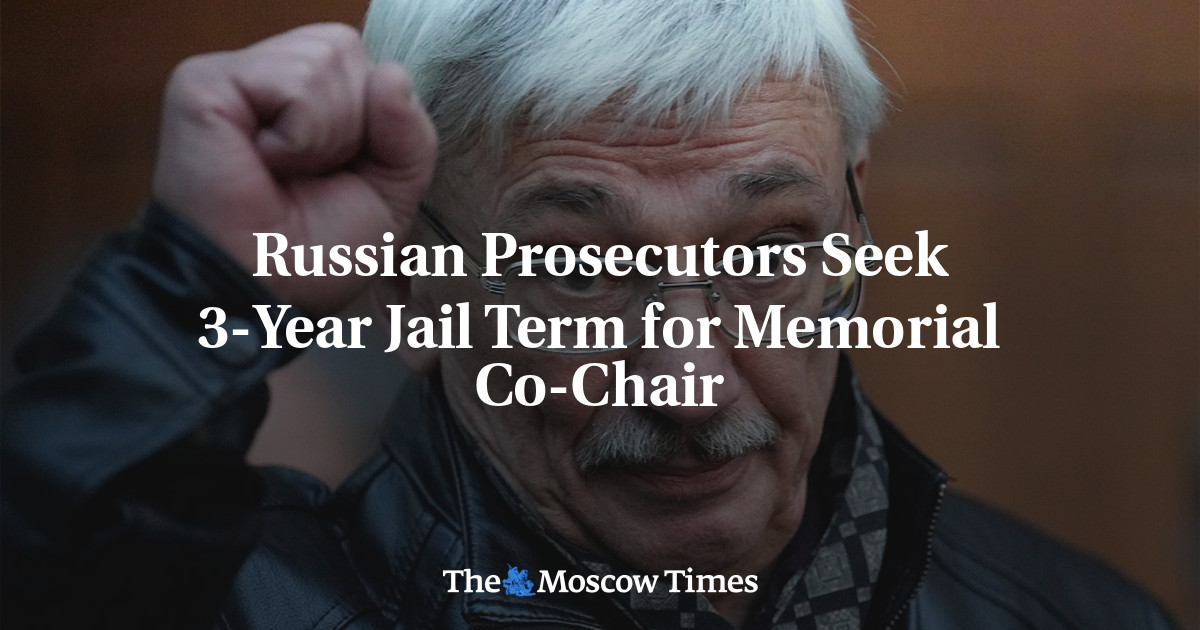
Russian prosecutors are seeking a three-year prison sentence for veteran human rights campaigner Oleg Orlov, who was fined by a Moscow court earlier this month, after he wrote an article saying Russia had become a “fascist” country under President Vladimir Putin, the Memorial rights group said Friday.
Orlov, who serves as Memorial’s co-chair, was fined 150,000 rubles ($1,500) earlier in October for publicly opposing Russia’s war invasion of Ukraine under wartime censorship laws.
State prosecutors appealed that sentence with Moscow’s Golovinsky District Court on Thursday and are now seeking a three-year jail sentence for the 70-year-old activist, according to Memorial.
“Orlov’s punishment is excessively mild… it’s obvious that Orlov needs isolation from society for his correction,” the prosecutor, identified by his initials N.V. and the last name Stupkin, was quoted as saying by the rights group.
“Case materials indicate Orlov was motivated by political and ideological hatred of Russia, which he tried to convey to as many people as possible,” Stupkin wrote.
The request marks a significant reversal from the same prosecutors who had initially sought to fine Orlov due to mitigating circumstances, including his old age and testimony from his supporters.
According to Memorial, Stupkin criticized Moscow’s Golovinsky District Court for rejecting his colleagues’ initial request to conduct a mental health assessment of the veteran rights campaigner due to his “heightened sense of justice.”
“Discrediting” the Russian Armed Forces carries a maximum punishment of five years in prison. Likewise, spreading “false information” about the military carries a maximum prison sentence of 15 years.
Memorial said it had learned about the state prosecutor’s appeal after lodging its own appeal against the 150,000-ruble fine.
Orlov, who was among a group of winners of the 2022 Nobel Peace Prize, said the prosecutor’s appeal leaves “no doubt” about the political nature of his trial.
“I’m being prosecuted for dissent,” he said.
Memorial cemented itself as a pillar of Russian civil society, with its key activities including the preservation of the memory of victims of Soviet-era repression.
Russian authorities dissolved the group in 2021.
Police targeted Orlov and other members of Memorial in March on accusations that the group was engaged in the “rehabilitation of nazism.”